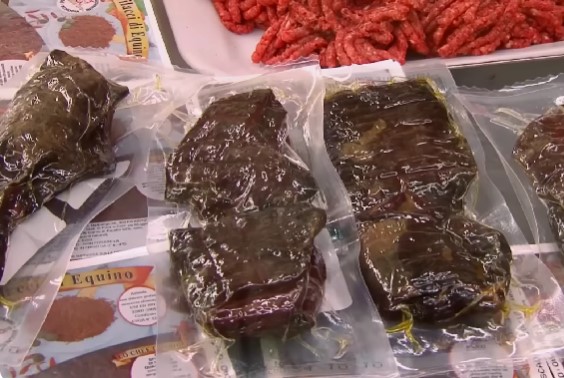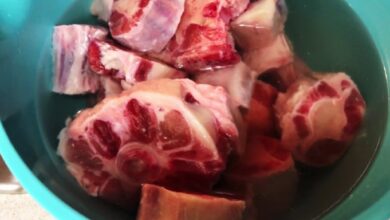Is Horse Meat Halal
Understanding the permissibility of consuming horse meat within Islamic dietary laws can be complex due to differing scholarly opinions. This article explores the various perspectives on this topic, providing a comprehensive overview for those seeking clarity.
Introduction
The question of whether horse meat is halal has intrigued many Muslims around the world. While some cultures embrace horse meat as a delicacy, others view it with hesitation. This article delves into the Islamic perspective on horse meat, examining scholarly interpretations, hadiths, and cultural practices to offer a thorough understanding of this topic. Whether you are curious about the taste of horse meat, where to buy it, or simply want to understand the religious guidelines, this article aims to provide you with detailed insights.
The Islamic Perspective on Horse Meat

Quranic and Hadith Evidence
The Quran does not explicitly mention the consumption of horse meat. However, hadiths provide clearer insights. For instance, a hadith reported by Bukhari and Muslim indicates that the Prophet Muhammad permitted the eating of horse meat, saying, “Allah’s Messenger prohibited the flesh of domestic asses on the Day of Khaibar, and permitted the cooking of the flesh of horses“. This suggests that horse meat is not haram (forbidden) but is permissible.
Scholarly Opinions
Islamic scholars have varied views on the permissibility of horse meat:
- Majority View: The majority of Islamic scholars, including those from the Shafi’i, Maliki, and Hanbali schools, consider horse meat halal. They base this on the actions and approvals of the Prophet Muhammad and his companions, who consumed horse meat without any prohibition.
- Minority View: The Hanafi school, however, categorizes horse meat as makruh (disliked), but not haram. They advise against its consumption without explicitly forbidding it, suggesting that while it is not sinful to eat, it is better to avoid it.
Fatwas and Contemporary Opinions
Modern fatwas, such as one issued by Al Azhar Al Sharif Islamic Research Academy in Egypt, affirm the permissibility of horse meat, emphasizing that it must be slaughtered according to Islamic rites. This further supports the view that horse meat can be considered halal if properly slaughtered.
Cultural and Regional Practices
Global Perspectives
The consumption of horse meat varies significantly across cultures:
- Central Asia: In countries like Kazakhstan, horse meat is considered a delicacy and is widely consumed during special occasions. It is an integral part of the diet and cultural heritage.
- Western Europe: In many Western European countries, the idea of eating horse meat is frowned upon or even taboo.
- Middle Eastern Countries: Opinions are divided, but generally, horse meat is viewed as halal by the majority, with some considering it makruh.
Taste and Availability
For those curious about the taste, horse meat is often described as being slightly sweet and tender. It is leaner than beef and has a distinct flavor. If you are wondering where to buy horse meat, it is available in specialized butcher shops and markets in regions where its consumption is more common, such as parts of Central Asia and Europe.
Frequently Asked Questions
Can Muslims eat horse meat?
Yes, Muslims can eat horse meat. According to various Islamic scholars, the consumption of horse meat is considered halal as long as it is slaughtered according to Islamic law.
Is eating horse meat common in Muslim-majority countries?
While not universally common, horse meat is consumed in certain Muslim-majority countries such as Kazakhstan, where it is considered a traditional dish. In China, the Muslim Hui people also include horse meat in their cuisine.
Why is horse meat considered halal by some scholars?
The permissibility of horse meat is derived from hadiths where the Prophet Muhammad (peace be upon him) allowed the consumption of horse meat, particularly during times of necessity. Scholars who follow the Hanafi school of thought, among others, consider it halal based on these traditions.
Why do some scholars consider horse meat makruh (disliked)?
Some scholars, including those from the Maliki school, consider horse meat makruh tanzihi (mildly disliked) rather than haram (forbidden). This opinion is based on the idea that horses are primarily meant for riding and work, not for consumption.
How does the Quran address the consumption of horse meat?
The Quran mentions horses as animals created for riding and adornment (Surah An-Nahl, 16:8). While it does not explicitly forbid their consumption, the interpretation varies among scholars regarding their use primarily for riding rather than eating.
Did Prophet Muhammad (peace be upon him) eat horse meat?
There are authentic hadiths indicating that the Prophet Muhammad (peace be upon him) and his companions consumed horse meat, particularly during the Battle of Khaybar, which supports its permissibility.
Are there any health benefits or risks associated with eating horse meat?
Horse meat is lean and high in protein, offering several health benefits. However, as with any meat, it should be consumed in moderation and sourced from healthy, well-treated animals to avoid health risks.
Where can Muslims buy halal horse meat?
Halal horse meat can typically be found in specialty butcher shops or markets in regions where its consumption is more common, such as Central Asia. Some online retailers also offer halal-certified horse meat.
How should horse meat be prepared according to Islamic dietary laws?
Horse meat, like any halal meat, must be slaughtered according to Islamic guidelines, which include invoking the name of Allah and ensuring the animal is healthy and free from disease at the time of slaughter.
What is the taste of horse meat like compared to other meats?
Horse meat has a slightly sweet flavor and is often described as being between beef and venison in taste. It is leaner than beef and can be quite tender if prepared correctly.
Is horse meat used in traditional Islamic cuisine?
Yes, in certain cultures with a strong Islamic presence, such as the Kazakh and Hui communities, horse meat is a part of traditional cuisine and is prepared in various traditional dishes.
What is the stance of different Islamic schools of thought on horse meat?
The Hanafi school permits horse meat, while the Maliki school finds it mildly disliked (makruh tanzihi). The Shafi’i and Hanbali schools generally permit it, considering the hadiths that allow its consumption.
Can horse meat be used in Islamic sacrificial rituals?
No, horse meat is not typically used for Qurbani (sacrificial) purposes during Islamic festivals like Eid al-Adha, as the preferred animals for sacrifice are sheep, goats, cattle, and camels.
How do cultural practices influence the consumption of horse meat in Muslim communities?
Cultural practices greatly influence dietary habits. In regions where horses are vital for transport or agriculture, their meat might be less commonly consumed compared to regions where they are raised primarily for meat.
Are there any Islamic legal restrictions on selling horse meat?
Selling horse meat is permissible as long as the meat is halal and the business complies with Islamic business ethics and regulations, including honesty in trade and ensuring the meat is fit for consumption.
How do modern Islamic scholars view the consumption of horse meat?
Modern scholars continue to hold diverse opinions based on historical and religious texts. While many uphold its permissibility, they also emphasize cultural and contextual considerations in its consumption.
Conclusion
The question of whether horse meat is halal is largely settled among the majority of Islamic scholars who consider it permissible. However, some advise caution, viewing it as makruh. Ultimately, the decision to consume horse meat should be guided by individual beliefs, scholarly advice, and adherence to halal slaughter practices. By understanding these perspectives, Muslims can make informed dietary choices that align with their religious principles.
Read also: Is Alligator Halal





